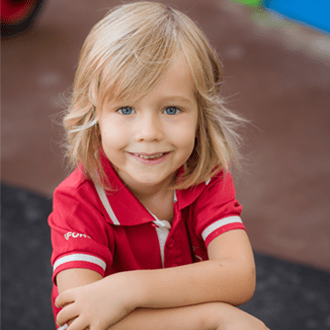We use cookies to improve your online experiences. To learn more and choose your cookies options, please refer to our cookie policy.

This back-to-school season is shaping up to be unlike any before. As kids, parents, teachers, and schools approach the start of a new school year, there are still many questions about exactly what school might look like in the midst of the COVID-19 pandemic. With so many questions around school reopening, many parents don’t know how to prepare their kids for the upcoming year. For guidance, we turned to Neha Qazi, Counselor at the Swiss International Scientific School Dubai.
1. Set expectations As we approach the reopening of schools, it is important to introduce what to expect through play or informal conversation. Avoid having this conversation at bedtime as it may instill feelings of fear or anxiety and interfere with sleep patterns. Children may process this information in their own time and ask questions. If you are unsure about an answer, it is okay to tell them you don’t know. However, follow that statement with something reassuring, for example, ‘but don’t worry, you are safe with your teachers’ or ‘don’t worry, we will find out together’. When you feel your child is prepared, use the videos the school shared about returning to school. Offering a visual to children, often helps further reduce anxiety and understand better what to expect. 2. Introduce a routine While some of you may have started already, it is not too late to introduce a routine for your children, it may help to involve them in the process of creating a routine. For example, would you like to do homework before or after your snack. Agency is an important tool for children to feel in control, especially during this time. Routines give structure to a child’s day and it tells them what to expect. When children know what to expect, they feel safe and it makes transition times smooth. The routine may include times, for example bedtime, meal times, homework etc. 3. Keep communication open Children will experience a range of emotions as they return to school. As they come across new experiences they may challenge their own thoughts and feelings. In this time, it is important that they are surrounded with adults who are available to listen to their feelings, validate them and assure them. At times, it is also helpful to share a personal experience and tell them you have also felt this way and normalize the emotion. Try not to discount any experience or feeling they have had. At times, parents may assume that their child feels a certain way about an experience based on their own feelings. We must remember that children are resilient and projecting our stress and feelings on to them may not be helpful. At times, feelings are accompanied with questions. In this case, validate their feelings and then explain the ‘why’. Encourage conversations about new safety measures and protocols in schools. Most importantly, remain calm and positive. 4. Manage your own wellbeing While we prepare our children, it is also important to take mindful breaks for ourselves. Stop, breathe and reflect. If we are unable to manage our own physical and mental health, we won’t be ready to help our children. Create an open, safe space in your family so everyone is able to share their feelings and express their needs. Keep a vigilant eye on pictures and pretend play as some children may express their feelings creatively. Reflect together as a family and set short-term, achievable goals. This is a very challenging time that all families may respond to differently. Create healthy filters on information you receive and personalize your back to school plan. For example, there may be parents who want to introduce homework time into the first week back but you may want to allow time for your child to feel emotionally settled first before you address learning. Create a family routine that facilitates you and your children and schedule in time for relaxation, either independently or as a family. 5.Behavioral Challenges Teachers at SISD are busy preparing plans for social emotional learning to allow a smooth transition back into school. If children don’t feel safe, they are unable to learn or perform. Therefore, we encourage parents to make their wellbeing a priority and focus on helping them adapt. This journey will not be easy. We must prepare ourselves for undesirable behaviors, changes in behavior, regressive behavior (disturbed sleep patterns, bed wetting etc.) and unbalanced emotions. This is normal, even for children who typically don’t find transitions difficult. Don’t hesitate to collaborate with your teachers to understand your child’s needs. It is alright to check in regularly about your child’s wellbeing. This may also help you understand the underlying unmet need which may be resulting in the challenging behavior. Don’t respond to the behavior, instead model the desired behavior. Children may react in unexpected ways to stress and fear. Consistently remind them that they are cared for by sharing the role that family and school are playing to keep them safe. Keep the communication precise and simple. If you are unable to resolve the behavior, please ask for help. The pastoral care team at SISD collaborates with parents and teachers to help the child. If they find that professional help is required, they will connect you to someone trusted and suitable. Lets make this work together. If you are already aware of your child’s needs and expect him or her to find the first day challenging, please contact a member of the pastoral care team so we can work towards making your first day back less challenging and more pleasant. Sone Du Plessis Deputy Head, Early Years Neha Qazi Counselor